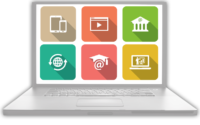
Maximizing Interactivity in Online Learning: Moving Beyond Discussion Boards
Emergent technologies and communication channels have evolved over time and now offer more connected interactivity between students, their peers, course content, and their instructor. Yet, many who teach in the online environment continue to utilize the traditional forms of communication (such as discussion boards and email). This article explores practical strategies for maximizing interactivity, shares […]
















